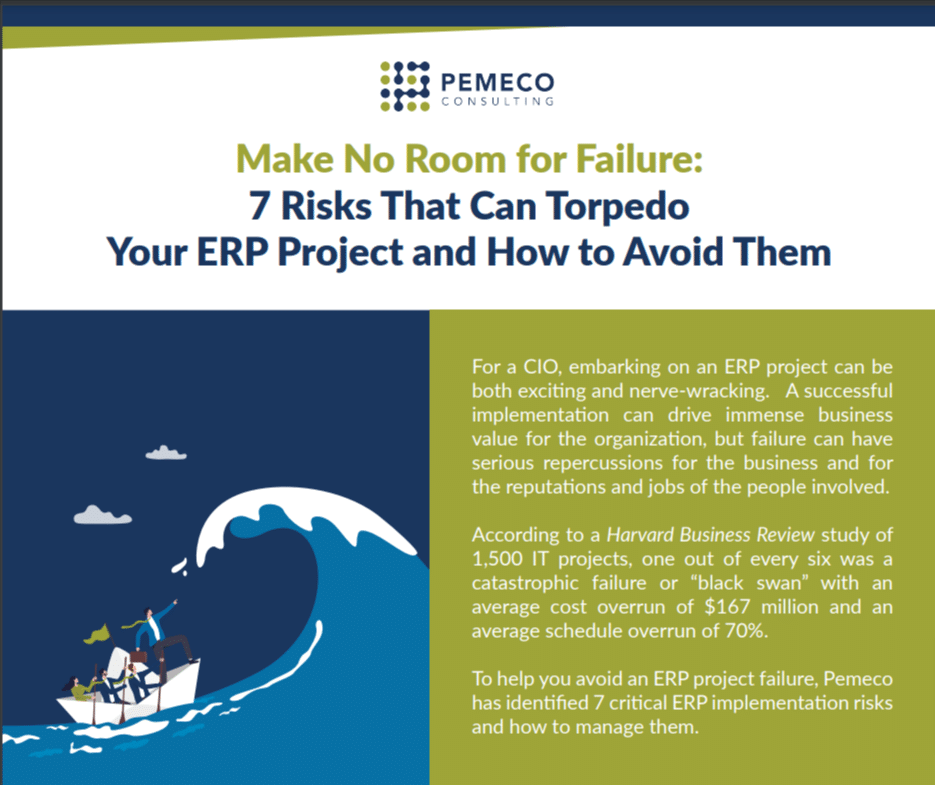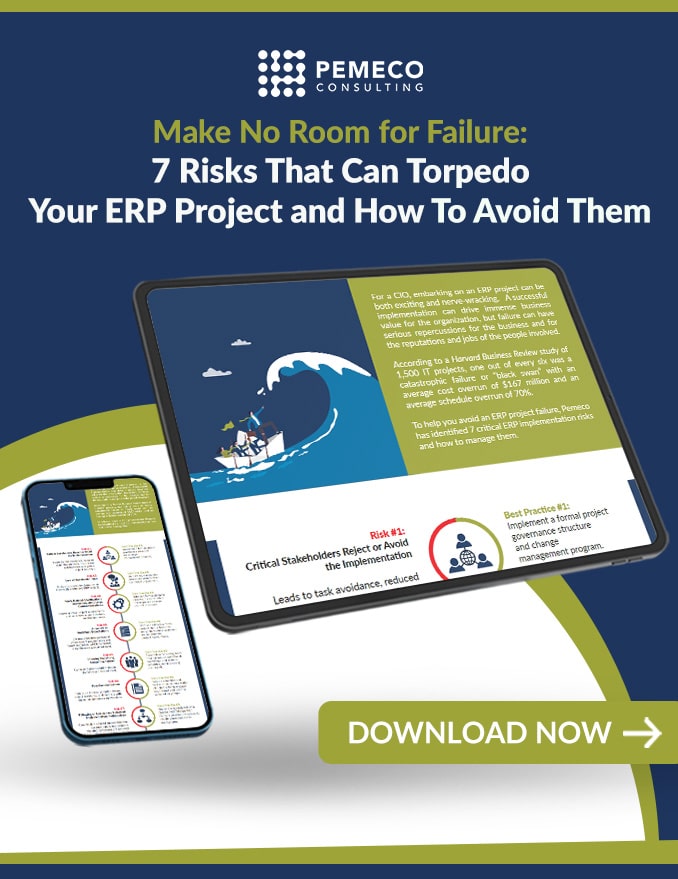I come at this topic from the perspective of ERP implementation project management.
In the Focus.com discussion, I gave my view that:
“I’ve heard people say that IT projects are “all about the technology” or “all about the business”. My personal opinion is that the projects are a combination of the two. More specifically (and at a granular level), they’re a combination of people, business processes and technology.
The idea behind IT projects is that business and technology become fused to generate all kinds of synergies. The project managers need to be strong in business, people and technology.”
But, as Robert Kelly pointed out, the project manager doesn’t necessarily need to be an expert in the given system. Kelly, a project manager, is a managing parter at Kelly Project Solutions who served Lenovo and now serves Red Hat. Kelly explained his perspective by quoting his former mentor:
“You do not have to be an expert or even strong in the systems/technologies you are working with. You need to operate in a mode of trust but verify. So you need to know enough that the technical folks aren’t pulling one over on you and enough to be able to translate business expectations/requirements into language that matters to them (and vice versa). If you are being asked to code, then something went wrong…”
John McCoy, an enterprise solutions architect at insurance provider Assurant, went one step further. He turned the discussion to technical project managers. In his view,
“technical project managers are generally still unable to close the gaping chasm that exists between business use and IT.”
To recap, we all agreed that in-the-trenches technical work shouldn’t be part of the project manager’s job description. Although these skills might be useful in the occasional urgent situation where, say, a core team member is temporarily absent, the project manager simply can’t be effective at his job if he’s spending his time doing technical work.
That’s not to say, however, that the project manager shouldn’t have any technical capabilities. Rather, his technical skills should be commensurate with his project management responsibilities. To illustrate my point, I used the following analogy:
“The project manager needs to act like an orchestra conductor. A good conductor might not necessarily know how to play each of the instruments. However, he will be adept at getting the different musicians to play in harmony.”
Just as a conductor needs to understand music to the extent necessary to conduct, a project manager should understand technology to the extent that the technology project requires.
In some cases, though, the project might not place heavy IT demands on the project manager. Gail Wallace, the president of Bellwind Consulting, had this to say:
“The best project manager I ever worked with had no IT background even though he led a year long project for migrating 13 locations that were using a variety of systems onto a single system. He did know the business side in and out and had superb leadership abilities which made him successful. He worked hand in had with the system architect and the project was completed on time and under budget.”
I understand Gail’s point, but sincerely doubt that the project manager had “no IT background”. Perhaps he’s wasn’t technically trained, but to succeed, he would have certainly had the experience that’s necessary to drive successful IT projects. IT projects, ERP in particular, have technology-related phases over which the project manager must preside. These include data migration and systems testing, among other things. I would count expierence with these phases as “IT background”. Perhaps this is more a question of semantics.
In final analysis, we haven’t reached a definitive, one-size-fits-all solution. Nor would we ever be capable of doing so. However, we can all probably agree that the particular circumstances of the project should dictate what’s required in a project manager.
Maybe we all got a little sidetracked about what’s really required in a project manager – and that’s an ability to drive teams to deliver projects on time, within budget and to a level that’s satisfactory to stakeholders.
Your POV (post comments below)
- Is it important for your ERP project manager to be an expert in the chosen ERP system? Why or why not?






